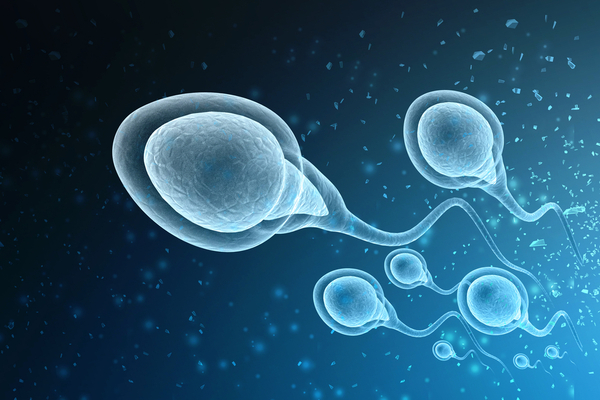In the future, tissue could be taken from boy cancer patients who undergo aggressive chemotherapy, or men with certain infertility problems, and used to produce sperm.
By John Jeffay, Israel21c
Researchers in Israel have developed a silicone microchip that could ultimately help them to grow human sperm in a laboratory.
The technology has successfully been tested on mice and could eventually prove effective in resolving male infertility problems.
A team at Ben-Gurion University of the Negev working in collaboration with a research group at the Technion – Israel Institute of Technology, says that in the future tissue could be taken from boy cancer patients who undergo aggressive chemotherapy, or men with certain infertility problems, and used to produce sperm.
The team has already developed a procedure for creating sperm cells for immature mice in the lab and is now preparing for the next phase – applying the experiment to cells from humans.
The mouse sperm is being grown using a microfluidic system which contains a microchip made from PDMS (polydimethylsiloxane) that has been specially adapted for the study.
“This study opens up a new horizon in the process of creating sperm cells in a culture,” said Prof. Mahmoud Huleihel, from the Shraga Segal Department of Microbiology, Immunology and Genetics, at the university’s Faculty of Health Sciences.
“It enables the implementation of microfludic-based technologies in future therapeutic strategies for infertile men and in the preservation of fertility for children undergoing aggressive chemotherapy/radiotherapy treatments that may impair their fertility in puberty.
“In addition, this system may also serve as an innovative platform for examining the effect of drugs and toxins on male fertility.”
Overcoming Cancer
Mice that are too young to produce sperm were the model that allowed the team to simulate a natural environment for growing sperm cells in the testicle.
They built a complete system containing canals that allow the addition of growth cells, cells from the testicles, or any other cells from the tissues of the body.
The culture was tested after five to seven weeks and semen tube-like structures were seen, containing advanced-stage cells in the process of sperm formation.
Prof. Huleihel said they had to be certain that sperm-producing method would avoid the risk of returning cancer cells to the patient’s body.
The research was published recently in the peer-reviewed journal Biofabrication.
The research group included: Prof. Emeritus Eitan Lunenfeld, from the Faculty of Health Sciences at Ben-Gurion University of the Negev and Soroka Medical Center, currently a senior faculty member at Ariel University and Prof. Gilad Yossifon, from the Faculty of Mechanical Engineering at the Technion (currently a faculty member from the School of Mechanical Engineering at Tel Aviv University).
The research was led by Ph.D. students Ali Abu Madighem, from the Shraga Segal Department of Microbiology, Immunology and Genetics, Ben-Gurion University of the Negev and Sholom Shuchat from the Department of Mechanical Engineering, Technion – Israel Institute of Technology.
The study was supported by the Israel Science Foundation (ISF) and in collaboration with the Chinese Foundation for Natural Sciences (NSFC), the Fertility Center at the Faculty of Health Sciences, Ben-Gurion University of the Negev, and Council for Higher Education Scholarships for outstanding Ph.D. students from the Orthodox and Arab populations.
